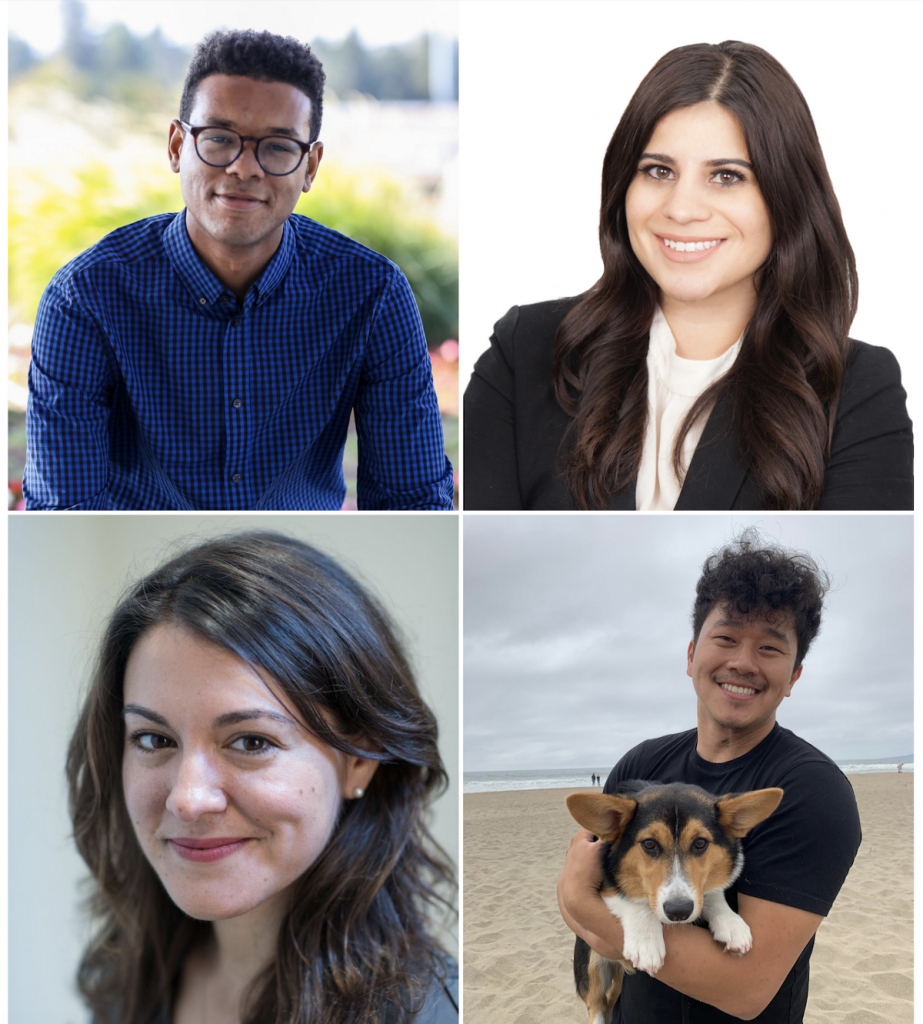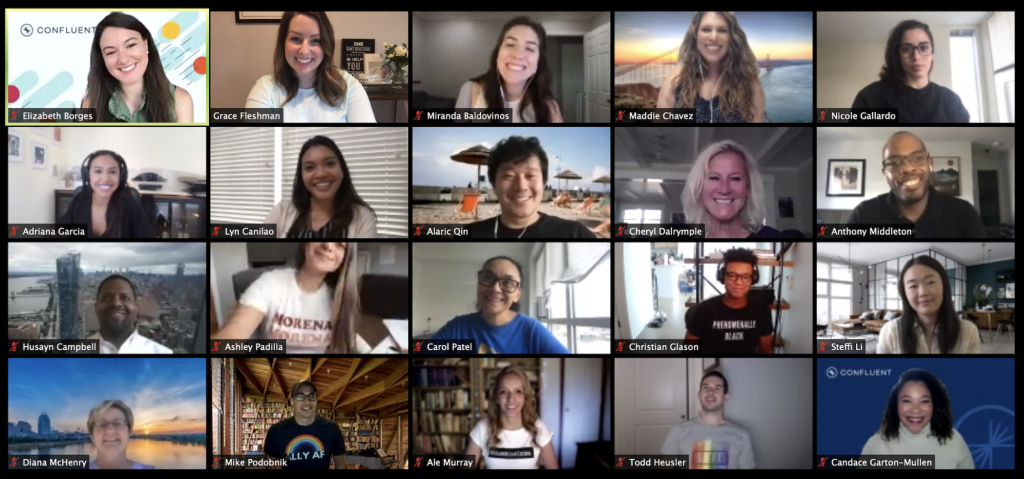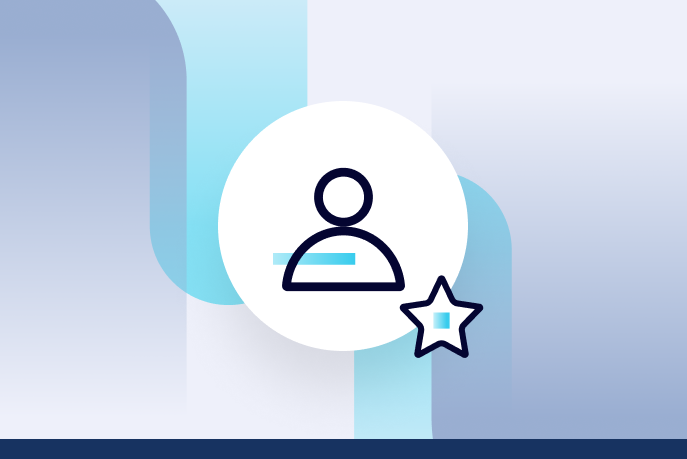Kafka in the Cloud: Why it’s 10x better with Confluent | Find out more
Activating Intent: How Confluent is Energizing Its Diversity, Equity, and Inclusion Practice
Get started with Confluent, for free
Watch demo: Kafka streaming in 10 minutes
As a South African, who grew up during the era of apartheid, I’ve witnessed firsthand the negative and long-lasting impact of discrimination, bias, and inequity, and I have a strong personal commitment to racial equity and social justice. As a business leader, I know that different and unique perspectives make our teams more innovative, agile, and effective. And as I engage daily with Confluent’s customers, as chief customer officer (CCO), I’m reminded that diversity, equity, and inclusion (DEI) is central to one of our foremost company values, “earning our customers’ love.” To serve our increasingly diverse customer base, Confluent must reflect and embrace the diversity of our global community.
To accelerate these efforts, our team has moved this year from community-driven DEI work to deliberate and structured initiatives spanning the entire company. A critical part of this work has been the leadership of Confluent’s new and emerging employee resource groups (ERGs), headed up by a team of committed employees and executive sponsors. I am very proud to be the sponsor for Blackfluent, our community for Black employees and allies. Below, Christian Glason (Head of Lifecycle Marketing and co-lead of Blackfluent), Ashley Padilla (Customer Marketing Manager and co-lead of Conmigos), Alaric Qin (GTM Strategy Manager and co-lead of Asians @ Confluent), and Lizzie Borges (Head of Diversity, Equity, and Inclusion) share the highlights and challenges of this work, and how Confluent is turning potential into organized action.
What moment is Confluent in, from a DEI standpoint?
 Clockwise from top left: Christian Glason, Ashley Padilla, Alaric Qin, and Lizzie Borges. (Photos provided by the interviewees.)
Clockwise from top left: Christian Glason, Ashley Padilla, Alaric Qin, and Lizzie Borges. (Photos provided by the interviewees.)
Alaric: I just joined Confluent seven months ago, and in that time, I’ve seen a huge transformation. When I started, there was a lot of latent excitement and energy — employees wanted to get involved but didn’t know how. Then in the last few months, people started moving toward direct action and community organizing, and also Lizzie joined the company. Now that latent energy is being focused into a structure with institutional support, and I’m really excited to see that happen.
Christian: We’re at the point where we’re really deciding who we want to be as a company. People definitely still struggle with talking about DEI, but I’m seeing the Confluent community as a whole talk about things more openly as we start to offer programming around DEI. And people are showing up to those programs.
Lizzie: Right; we’re in a critical moment. For the past few years, there was definitely community organizing in the form of one-off projects or initiatives. Now, we’re moving from a place of things developing organically with DEI to a place where we’re building with intention.
Tell us more about where you’re headed with DEI.
Christian: When I first joined Confluent, I wasn’t sure how authentic I could be in terms of sharing the things I care about, or how deeply I could engage beyond my manager and my immediate team. Fast forward to today: I feel more comfortable being who I am, saying what I stand for, and why those things should matter — and I can champion my beliefs across the company, which is huge for me. And we still have a lot of work to do.
“We’re having a company-wide conversation about why DEI is important, and we’re hearing directly from employees what direction they want this to go in so we can co-create together.” —Lizzie Borges
Lizzie: We’re really investing in the building blocks of DEI. One of the first steps was building the infrastructure for our people data in order to understand our workforce representation across a number of different dimensions—gender, race, tenure, age—and be intentional with that process. There are some communities that are very underrepresented at Confluent, so having that data helps us understand how we’re doing and how we can set goals for where we want to be. As we build a culture that is inclusive and create sustained programmatic efforts — for things like Women’s History Month, Mental Health Awareness Month, Pride, Juneteenth, Hispanic Heritage Month — we’re investing in those communities. And we’re having a company-wide conversation about why DEI is important, and we’re hearing directly from employees what direction they want this to go in so we can co-create together.
What have been some highlights of building toward a more inclusive Confluent?
Alaric: On our all-company Slack channel, I shared my experience of dealing with racism and being an Asian American in the United States, and I was deeply touched by people’s reactions. People began to share similar experiences openly, and that energy led to action. A group of excited, passionate API (Asian/Pacific Islander) employees began to work on several initiatives, like educating the community on how to be anti-racist as an Asian American or ally and how to practice bystander intervention.
Christian: This year’s Juneteenth event was one of my favorite moments at Confluent. Michelle Silverthorn spoke about anti-racism and “The 10 New Rules of Allyship, Equity, and Inclusion,” and her talk was amazing. Over 200 employees were glued to Zoom for the entire session. We also offered an Empathy Circle just for Black employees to express ourselves and have an important, therapeutic conversation, with a facilitator.
“With effort going into building and supporting communities, more people are able to experience [a] sense of unity right away.” —Ashley Padilla
Ashley: So, part of my job includes working events, and there was a moment from a global trade show that stands out for me. A coworker at the booth heard me speak Spanish. He didn’t want to assume I’m Mexican just because I look Latin, but once he overheard me and we talked about it, he said, “I’m going to take you under my wing because you’re like me. There aren’t many of us in tech.” From there, my experience shifted completely — when I come to work, there’s unity, and it’s a family. And now, with Lizzie here, and with effort going into building and supporting communities, more people are able to experience that sense of unity right away.
What are some challenges you face in doing this work?
Christian: As a company, we’re scaling and going through big changes. There are things we need to fix that we don’t necessarily think of as DEI issues, but they make what we’re trying to do around DEI more challenging. Things like how transparent our processes are around how we reward and promote people — when those processes are obscured, employees from underrepresented groups are more likely to lose out.
“As a company, we’re scaling and going through big changes. There are things we need to fix that we don’t necessarily think of as DEI issues, but they make what we’re trying to do around DEI more challenging.” —Christian Glason
Ashley: Yeah. I think there are a lot of people who look like me or who speak Spanish on our team. But when you look at the numbers and our growth, it’s clear there can be more people like me in leadership.
Lizzie: I’m working on showing our current leadership that this is a topic we have to approach with both our heads and our hearts. Fortunately, we have many different engaged leaders who really want to champion this work, and we plan to leverage their skills and influence in different ways. I’m hopeful that the leaders who are already actively participating will help bring along colleagues who have further to go.
 ERG leads and program stakeholders gather for an ERG Leadership Council “Mini Summit,” social distancing style
ERG leads and program stakeholders gather for an ERG Leadership Council “Mini Summit,” social distancing style
Tell us more about the progress you’ve made with ERGs.
Alaric: A few months ago, Asians @ Confluent distributed a survey within the community to help us understand how best to engage with folks and figure out what direction to head in. We heard that people want to teach each other about our culture, learn about other people’s cultures, develop professionally, partner with local Bay Area nonprofits, and have fun. One of our upcoming events is a lunch and learn with API women in leadership positions. They’ll share their experiences as an API leader, challenges they’ve encountered, and tactical and philosophical advice on how to navigate the workplace. There’s a lot of interest and excitement from the community.
Ashley: A big recent step for Latinx employees has been building the community internally, and figuring out what to name our ERG so that our name encompasses Latinx, supportive allies, and people who want to learn about us. We’ve recently landed on “Conmigos”—“Con” for Confluent and also “with” in Spanish, and “migos” like amigos, or friends. So, we have our friends and allies with us, too. We want people to feel like they can come and ask questions, and that we can share our experiences.
“Before Confluent started investing in this work, these movements and motions as a community didn’t exist, but now they do.” —Christian Glason
Christian: Community is what my colleagues in Blackfluent and I are most focused on at this point. When I started at Confluent, you couldn’t even figure out who the other Black people at the company were, and there weren’t informal ways to connect. Just this week, we had a Black person join — he asked his managers about ERGs, and I was able to introduce him to informal and formal channels we’ve created at Confluent. We also have a book club, and the Empathy Circle that I mentioned earlier. Before Confluent started investing in this work, these movements and motions as a community didn’t exist.
What does allyship mean to you, and how can allies support DEI work at Confluent?
Ashley: Allyship is a partnership. I want people to lock arms with us and say, “I hear you. I see you. I’m here.” Allies are here to listen because everyone’s experiences are different.
Christian: I’m actually still figuring out what allyship at Confluent means for me. At a very basic level, I think of allyship as you acknowledging that my experience is very real, and supporting me even if you don’t fully understand it. As ERG leaders, we’re thinking about the role we want allies to play in our ERG journey. It’s important to have a space where just the community is able to connect with each other in a way that’s effective for that specific community.
Lizzie: Right now, I think allyship at Confluent translates to showing up — and people are already showing up because they want to learn and to figure out how to be supportive. Employees can join Slack channels for each ERG, attend ERG events, and get involved as volunteers to help plan ERG initiatives. Coming up, Conmigos will help us with Hispanic Heritage Month in September. And I want to acknowledge that at this critical moment, the work that leaders like Christian, Alaric, and Ashley are doing is huge. They’re taking us from potential to a state of action. I’m so inspired by what they’ve done, and I know there’s more we can do.
Interested in joining the Confluent team?
We’re hiring! Check out open roles or learn more about our company culture on Comparably, LinkedIn, and Glassdoor.
This story was created in conjunction with Job Portraits, a Bay Area-based creative agency that helps teams scale using culture-focused content.
Get started with Confluent, for free
Watch demo: Kafka streaming in 10 minutes
Did you like this blog post? Share it now
Subscribe to the Confluent blog
A Sales Director’s Take on the Rewards of Customer Success
Let’s learn more about Alejandro, why customer success is so rewarding, and how Confluent fosters a culture of continuous learning and growth.
How Technical Architect Bergur Helps Customers Win with Data Streaming
Let’s learn more about Bergur, the importance of customer engagement, and how Confluent fosters an environment for innovation and growth.
